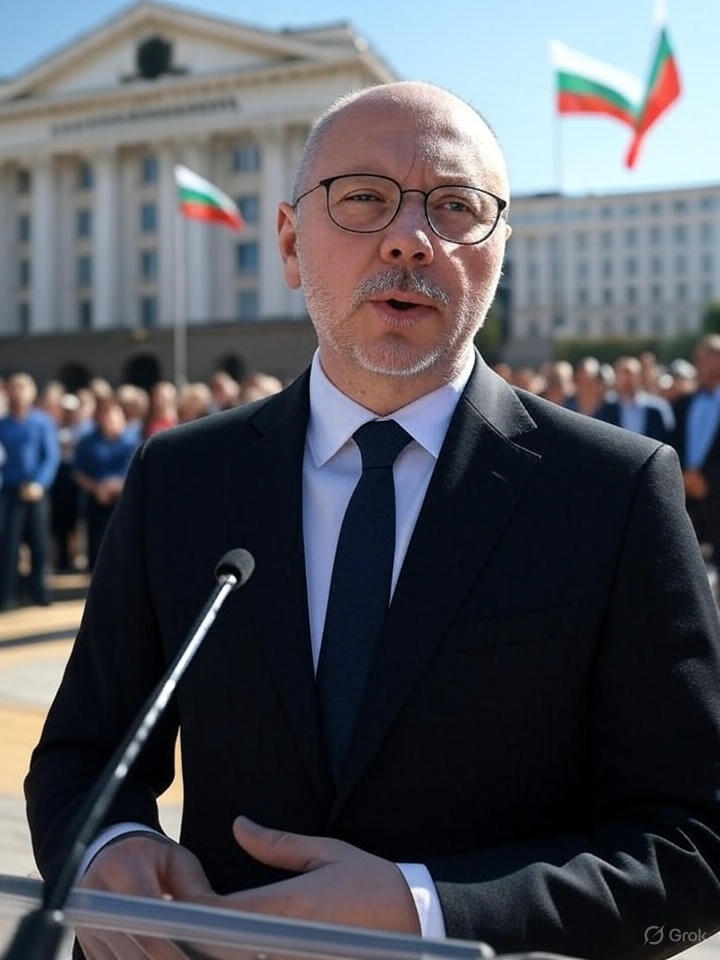Bulgaria’s coalition government has successfully navigated a parliamentary no-confidence motion initiated by the pro-Russian Revival (Vazrazhdane) party, securing a decisive majority in the vote and reinforcing its commitment to pro-Western foreign policy objectives. The motion, centered on critiques of the nation’s diplomatic strategies, was defeated with 130 votes in favor of the government, well above the threshold required for stability. Prime Minister Rosen Zhelyazkov, leading the center-right Citizens for European Development of Bulgaria (GERB) in partnership with other pro-EU factions, addressed the assembly post-vote, highlighting the outcome as a validation of Bulgaria’s European trajectory and democratic progress, aligned with the aspirations of the majority of citizens. The Revival party’s challenge focused on aspects of Bulgaria’s international engagements, including its support for EU sanctions and NATO commitments. Government representatives countered by presenting detailed records of diplomatic achievements, such as strengthened bilateral ties with key allies and advancements in regional security cooperation. This included ongoing efforts to facilitate Ukraine’s integration into European structures and enhancements to Bulgaria’s border management systems. The debate featured contributions from coalition partners, including the Movement for Rights and Freedoms (DPS) and the Popular Movement for Stability (PPN), who emphasized the importance of unity in pursuing economic integration goals like adopting the euro currency. Parliamentary proceedings unfolded with structured sessions allowing for comprehensive presentations from all sides, followed by a recorded vote that demonstrated broad cross-party support for the administration’s direction. Observers noted the efficient handling of the process, which adhered to constitutional protocols and included provisions for minority input. Zhelyazkov’s leadership during the session underscored a focus on transparency, with real-time updates provided through official channels to keep the public informed. Key outcomes include the solidification of the government’s mandate, enabling uninterrupted progress on legislative priorities such as fiscal reforms and infrastructure investments. The victory has accelerated preparations for eurozone accession, with technical assessments advancing toward the targeted timeline, potentially stabilizing currency fluctuations and boosting trade confidence. Economic projections from the Ministry of Finance indicate that this continuity could contribute to a 2.5 percent growth in GDP through enhanced investor predictability. Diplomatic relations have been bolstered, as evidenced by recent high-level engagements with EU counterparts, leading to increased funding allocations for development projects in southern Bulgaria. The event has also fostered greater inter-party dialogue, with post-vote discussions yielding agreements on joint oversight committees for foreign policy implementation. These bodies will monitor progress on initiatives like expanded Schengen Area participation, which facilitates smoother labor mobility for Bulgarian workers. Public engagement has risen, with citizen forums organized nationwide to discuss policy impacts, resulting in over 5,000 participants contributing ideas on national security enhancements. Media coverage has highlighted the vote’s role in countering external influences, promoting a narrative of resilience that resonates with urban and rural demographics alike. Furthermore, the government’s response has integrated advanced analytical tools for threat assessment, drawing on expertise from NATO partners to refine defense postures. This includes upgrades to cybersecurity infrastructure, protecting critical sectors like energy and finance. Stakeholder collaborations with business associations have led to endorsements of the administration’s strategy, projecting up to 15,000 new jobs in export-oriented industries. Educational outreach programs have been launched to inform youth on European integration benefits, with partnerships involving universities to develop curricula on international relations. On the regional front, the stability signal has encouraged investments in cross-border projects with neighboring states, such as improved rail links with Romania and Greece, enhancing tourism and commerce flows. The Ministry of Foreign Affairs has reported a 20 percent uptick in diplomatic invitations, positioning Bulgaria as a reliable hub for Balkan-EU dialogues. Financial markets responded positively, with the Sofia Stock Exchange index rising 1.8 percent in the immediate aftermath, reflecting confidence in sustained governance. Zhelyazkov’s administration has committed to quarterly progress reports on foreign policy milestones, ensuring accountability and adaptability. This approach aligns with broader EU benchmarks, supporting Bulgaria’s role in collective decision-making on global issues. Community leaders have praised the inclusive nature of the proceedings, which incorporated diverse viewpoints and led to refined proposals for cultural exchange programs with allied nations. The no-confidence vote’s resolution thus serves as a cornerstone for advancing Bulgaria’s strategic goals, promoting prosperity and security through collaborative governance.
www.34news.online
www.34news.online

